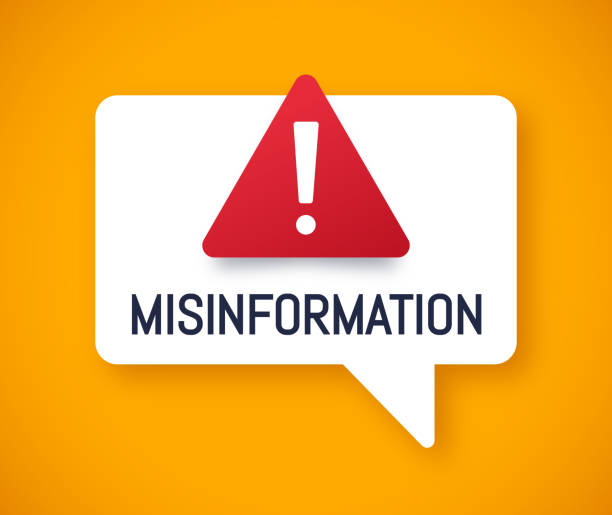The Dark Side Of Wellness Influencers: Unregulated Advice & Misinformation

Misinformation Warning Chat Speech Bubble
Source: Getty Images
In the digital age, social media has transformed how people access health and wellness information. Wellness influencers, with their curated images of health, fitness, and vitality, have gained immense popularity, wielding significant influence over public health behaviors and beliefs. However, behind the veneer of glowing skin and toned bodies lies a darker reality—a proliferation of misinformation, pseudoscience, and potentially harmful advice.
Wellness influencers on platforms like Instagram and YouTube have become modern-day health gurus, offering advice on everything from diet and exercise to mental health and alternative therapies. Their large followings often perceive them as credible sources of health information due to their apparent expertise and charisma. Influencers use their platforms to promote specific products, diets, and lifestyles, which followers often emulate in the pursuit of health and well-being.
The Risks of Unqualified Advice
For instance, in July 2020, a fashion influencer in India faced backlash for offering mental therapy sessions for a nominal fee on social media, despite lacking any qualifications in psychology or mental health therapy. Such incidents highlight the blurred lines between expert advice and personal opinion in the influencer sphere. Moreover, influencers’ promotion of products without understanding their efficacy or safety can lead followers to make uninformed health choices, often with adverse consequences.
One of the gravest dangers posed by wellness influencers is the spread of misinformation and pseudoscience. While many influencers genuinely aim to promote healthier lifestyles, not all possess the qualifications or scientific understanding to do so accurately. This has led to an abundance of misleading and potentially harmful advice being circulated, often without any basis in scientific evidence.
Real-Life Consequences of Following Bad Advice
Dr. Manish Jangra, founder of the Federation of All India Medical Association (FAIMA), has noted an increase in patients with skin problems due to following social media influencers’ advice. He said, “While working at RML Hospital, I would receive 5-6 patients daily who would have faced adverse consequences of using cosmetic products without a doctor’s consultation and recommendation. For instance, many patients damaged their skin by using Betnovate cream regularly as recommended by social media influencers. Dermatologists will never recommend such medicines or steroids unless extremely required- without proper consultation. To save Rs 500-1000 on doctor’s consultation, people are falling prey to social media influencers’ advice.”
Similarly, Dr. Krishan Rajbhar, an ENT consultant, has reported cases where patients suffering from nasal issues used Otrivin nasal spray for extended periods, based on social media advice, leading to severe surgical conditions. The misuse of such medications underscores the dangers of following unverified health advice from unqualified sources.
In response to the growing concerns over unregulated health advice, governments and regulatory bodies have started to implement guidelines to hold influencers accountable for the information they share. The Department of Consumer Affairs in India has introduced rules requiring influencers to disclose their medical qualifications when providing health recommendations or advertising related products. This ensures that followers can verify the credibility of the advice they receive and make informed decisions about their health.
Ensuring Qualified and Ethical Health Advice
The National Medical Commission (NMC) has emphasized the importance of procedures involving skin incision being performed only by trained and licensed medical practitioners. This comes in response to instances where influencers have promoted procedures or products without adequate medical understanding, leading to detrimental effects on public health.
Wellness influencers play a significant role in shaping public perceptions and behaviors related to health and well-being. However, their influence can also perpetuate misinformation and promote harmful practices. It is crucial for consumers to critically evaluate the information shared by influencers and prioritize advice from qualified healthcare professionals.
Moving forward, stricter regulation and adherence to ethical guidelines are essential to ensure that wellness influencers provide accurate and safe information. This includes proper disclosure of qualifications, avoiding the endorsement of unproven products or treatments, and promoting health advice grounded in scientific evidence.
Conclusion
In the era of social media, where information spreads rapidly and influencer culture reigns supreme, safeguarding public health requires a balanced approach that respects the influence of wellness influencers while holding them accountable for the impact of their advice.

